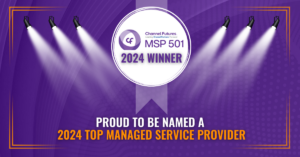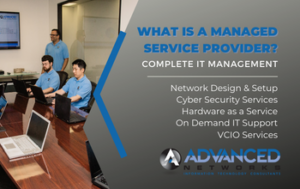Many industries face disruption due to the lightning-paced evolution of technology, and smart manufacturing is no exception. In this highly competitive landscape, leveraging Managed IT services is a must to stay ahead and survive.
SMBs and growing companies find it increasingly difficult to compete with more resourceful and established competitors. On the other hand, established entities face the risk of disruption if they become complacent and fail to embrace technological opportunities.
The NIST (National Institute of Standards and Technology) defines smart manufacturing as “fully-integrated, collaborative manufacturing systems that respond in real-time to meet changing demands and conditions in the factory, in the supply network, and customer needs.”
There are many different facets to embracing the “smart manufacturing” paradigm. However, today, we’ll discuss one specific solution, thin clients, and how they can benefit your business.
What is a Thin Client?
In IT terminology, we have what is called a thin client and a thick client. So, let’s take a typical network model where you have multiple clients connected to a main hub or server. A thick client has most features and capabilities built-in and can act independently of a central server.
A thin client is dependent on the main server to carry out its core tasks. They are a stripped-down implementation of the software that mostly acts as an accessible and user-friendly interface between the server and end-user. Thin clients are commonly used as shared terminals, virtual desktop environments, browser-based portals, or regular software applications.
In manufacturing contexts, one of the most practical applications of thin clients is as terminal servers.
We all know the importance of effective, accurate, and reliable production process monitoring. Internet-connected machinery that can constantly relay vast amounts of data to be collected and processed on a central server is becoming increasingly commonplace.
However, improvements can be made in how that information is distributed to be accessible, analyzable, and actionable by humans.
Thin Clients have advantages to offer smart manufacturing
- Security: Little to no data is stored on a terminal server. Even if one is compromised, access is still needed to the central server to cause any real harm.
- Accessibility: Thin clients can be distributed throughout your facility, or even remotely, for easy, 24/7 access.
- Cost Reduction: Thin clients don’t require sophisticated hardware/software. They are affordable to commission and maintain.
- Productivity: All of the above benefits should translate into improved productivity.
Who Can Use It
The simple answer is that anyone that wants to embrace the “smart manufacturing” ethos can benefit from thin client architectures. For example, site managers can monitor multiple aspects of your facility from thin clients. They can be implemented as terminals or mobile devices. Anyone who needs access to monitor machinery can do so at any time from any nearest thin client.
Your main server would still collect, process, and store all data, ensuring that the same, up-to-date information is shared with all endpoints.
Conclusion
Despite the potential benefits, implementing new technologies still poses some immediate challenges. Maintaining business continuity, ensuring the effectiveness of your solution, and implementing it with a sustainable strategy are just some of the concerns you must tackle. However, these can be overcome by partnering with an experienced enterprise IT solutions provider that specializes in developing secure, robust, and reliable network infrastructure.




